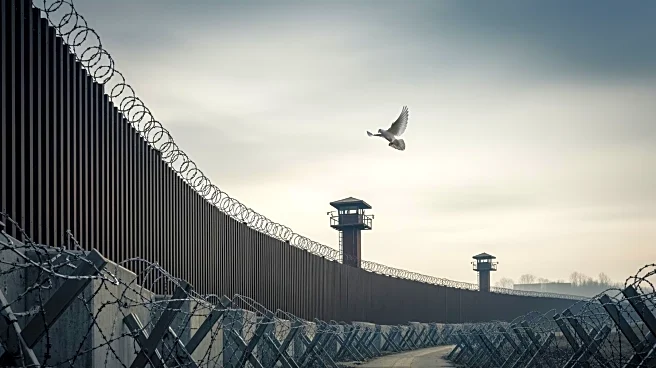What's Happening?
A North Korean soldier defected to South Korea by crossing the heavily fortified border, known as the Demilitarized Zone (DMZ), on Sunday. The South Korean military took custody of the soldier, who expressed
a desire to resettle in South Korea. This marks the first reported defection by a North Korean soldier since August 2024. The DMZ, despite its name, is a heavily guarded area with land mines, tank traps, barbed wire fences, and combat troops. Historically, most North Korean defectors have fled via China, which shares a long, porous border with North Korea. The defection comes amid strained relations between the two Koreas, with North Korea rejecting outreach efforts by South Korea's President Lee Jae Myung.
Why It's Important?
The defection underscores the ongoing tensions and security challenges on the Korean Peninsula. It highlights the risks faced by individuals attempting to flee North Korea and the fortified nature of the DMZ. The event may impact diplomatic relations, as it draws attention to the human rights situation in North Korea and the challenges of inter-Korean reconciliation. South Korea's response to the defection could influence its diplomatic stance and security policies. The defection also serves as a reminder of the complex geopolitical dynamics in the region, involving not only the two Koreas but also their allies and neighboring countries.
What's Next?
The South Korean government is likely to conduct a thorough investigation into the defection to understand the soldier's motives and gather intelligence. This incident may prompt discussions on border security and inter-Korean relations. South Korea may also face diplomatic pressure to address human rights issues in North Korea. The international community, including the United States and China, may respond with statements or actions that could influence regional stability. The defection could also lead to increased military vigilance along the DMZ.









